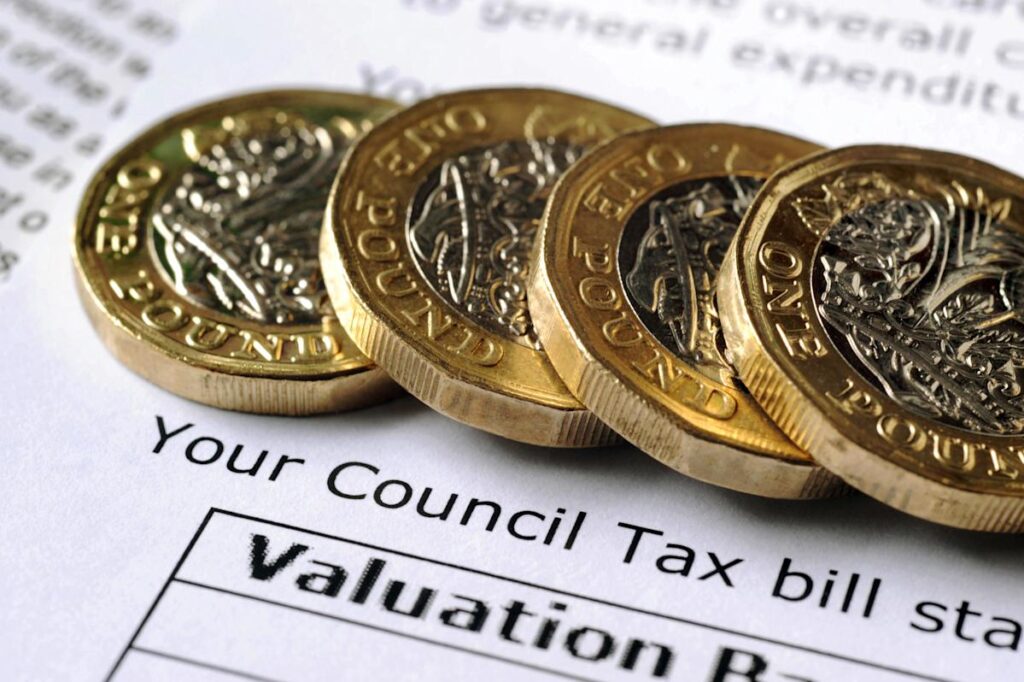Council tax debt is one of the most common and pressing financial issues faced by individuals and households in the UK council tax debt. As the cost of living continues to rise, more people find themselves falling behind on their council tax payments — sometimes without even realizing how quickly the debt can spiral out of control.
In this in-depth guide, we’ll break down what council tax debt is, the consequences of missing payments, and most importantly, the steps you can take to manage, reduce, and even write off your debt legally and effectively.
What Is Council Tax Debt?
Council tax is a mandatory local tax charged by local authorities to help fund essential services like rubbish collection, schools, police, and fire services. Every household in the UK is liable to pay it, unless exempt or eligible for discounts (such as students or single-person households).
Council tax debt occurs when a household fails to make the required payments on time. Even missing one or two installments can result in significant consequences, including court action and enforcement by bailiffs.
Why Do People Fall Behind on Council Tax?
Falling into council tax debt can happen to anyone, and the reasons are often outside an individual’s control. Some of the most common causes include:
- Loss of employment or reduced income
- Unexpected expenses or emergencies
- Physical or mental health issues
- Administrative errors or lack of understanding of payment deadlines
- Rising living costs and inflation
Unlike other debts (like credit cards), council tax is considered a priority debt by UK law, meaning it must be dealt with urgently.
What Happens If You Don’t Pay Your Council Tax?
The process for collecting unpaid council tax is relatively fast and aggressive compared to many other debts. Here’s how it usually unfolds:
1. Reminder Notices
If you don’t pay within 7 days, you may lose the right to pay in monthly installments.
2. Final Notice
If payment is still not received, the council will send a final notice demanding the full year’s council tax in one lump sum.
3. Court Summons
If you fail to pay the full balance, your council can apply for a liability order through the magistrates’ court. This is a legal demand for payment, and you may also be charged additional court fees.
4. Bailiffs and Enforcement Agents
This can lead to even more fees and potential seizure of personal belongings.
5. Deductions from Benefits or Wages
The council can also arrange for deductions directly from your salary or certain benefits like Universal Credit, Employment and Support Allowance, or Jobseeker’s Allowance.
Can You Go to Prison for Council Tax Debt?
While rare, imprisonment is a possibility in extreme cases where someone willfully refuses to pay council tax despite having the means. However, this is considered a last resort. More commonly, the court will seek alternative ways to recover the debt.
How to Deal with Council Tax Debt
If you’re struggling with council tax debt, don’t ignore it. Acting quickly can save you from extra fees, court action, and stress. Here are some practical steps to take:
1. Contact Your Local Council Immediately
Many councils are willing to work with you to set up an affordable repayment plan. Explain your circumstances honestly — early communication can stop the situation from escalating.
2. Check for Discounts and Exemptions
You might be eligible for council tax reduction or discounts. These include:
- Single-person discount (25%)
- Student exemption
- Low-income Council Tax Reduction schemes
- Disability reductions
Use your local council’s website to apply or check eligibility.
3. Seek Free Debt Advice
There are several UK-based charities and organizations that provide free, confidential debt advice, including:
- StepChange Debt Charity
- National Debtline
- Citizens Advice
- Christians Against Poverty
They can help you prioritize your debts, speak to creditors, and explore options like Debt Relief Orders (DROs) or Individual Voluntary Arrangements (IVAs).
4. Challenge Incorrect Bills
Make sure your council tax bill is accurate. If you believe you’ve been wrongly charged or the amount is incorrect, you have the right to appeal. Errors do happen, and challenging them can stop unnecessary debt from forming.
5. Consider a Breathing Space Scheme
This includes:
- A 60-day freeze on enforcement action and interest
- A mental health crisis version that lasts as long as needed
Your debt advisor can help you apply if you qualify.
Can Council Tax Debt Be Written Off?
In some cases, yes. While local authorities are not required to write off debt, they can do so in specific circumstances, particularly if:
- You are insolvent (e.g., in a DRO or bankruptcy)
- The debt is uncollectible (e.g., no assets or income)
- The person responsible has passed away
- Exceptional hardship exists
Always consult a debt advisor before pursuing this path.
Common Myths About Council Tax Debt
❌ “They won’t chase small debts.”
False. Councils can pursue even small council tax debts with court action and bailiffs.
❌ “They can’t take my possessions.”
Wrong. If a liability order is in place and bailiffs are instructed, your belongings can legally be seized and sold to repay the debt.
Ignoring the council is the fastest way to make the situation worse. Interest, fees, and court costs add up quickly.
Final Thoughts: Act Now, Not Later
Council tax debt may feel overwhelming, but you are not alone. Thousands of households across the UK face similar challenges every year. The key to managing this type of debt lies in early action, clear communication, and seeking professional advice.
By taking the right steps, you can reduce the stress, avoid court involvement, and move toward becoming debt-free. Whether it’s setting up a payment plan, applying for help, or working with a debt charity — support is available.


